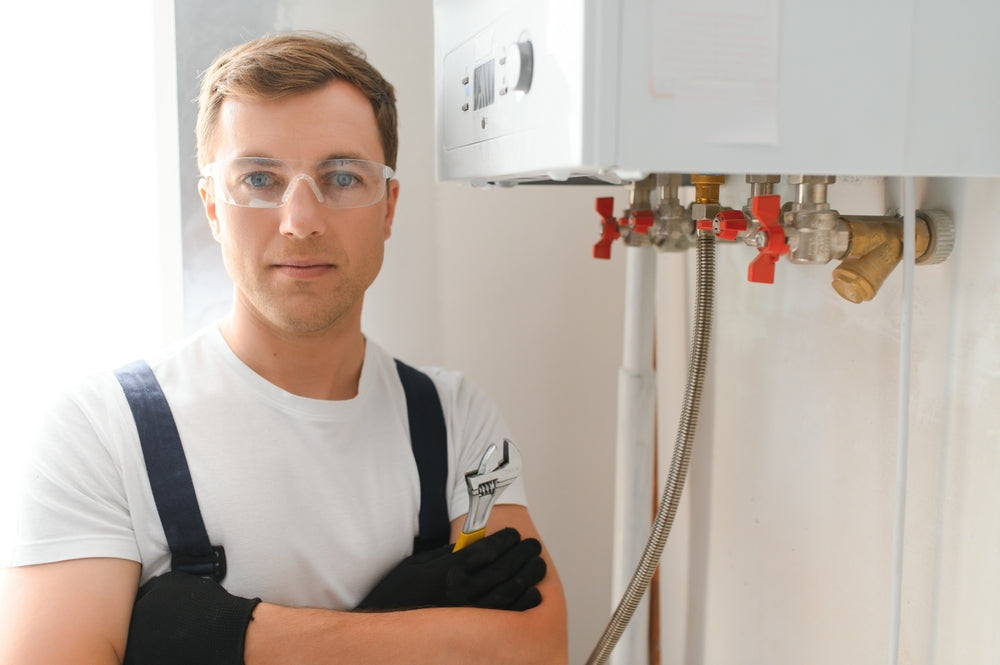
7 Top Energy-Saving Tips for Your Gas Heater Fan
Are you worried about rising energy bills during the colder months? You're not alone if you rely on a gas heater and fan to keep your property warm. Many Australian households and commercial premises use gas heaters, but they can be costly to run if not used efficiently. Fortunately, they don’t have to be!
Following a few simple strategies, you can reduce energy use and keep your home cosy without overspending. Let’s dive into some practical energy-saving tips to help you get the most out of your gas heater fan.
1. Pick the Right Gas Heater and Fan
The type of heater you choose can greatly affect your energy usage. Not all gas heaters are equal; some are more efficient than others.
- Look for Energy Efficiency: Always check the energy efficiency rating when shopping. In Australia, products are rated with stars; the more stars, the better. An energy-efficient heater uses less gas and helps you save money in the long run.
- Smart Features: Models with features like thermostats, timers, and eco modes are great because they help you control how much energy you use.
- Size Matters: Make sure your heater suits the space you want to heat. A smaller room needs a smaller heater, and using an oversized heater wastes energy.
Choosing the right gas heater and fan sets you up for ongoing energy savings.
2. Position Your Heater Properly
Did you know where you place your heater affects how well it works? Proper positioning is crucial to ensure your heater warms your room efficiently without wasting energy.
- Avoid Drafts: Place your heater away from windows, doors, and drafty spots where warm air can escape. This helps keep the heat in and reduces how hard your heater has to work.
- Height and Location: Fans work best when placed at a height that circulates warm air downwards, spreading heat evenly.
- Central Placement: Position your heater centrally in the room if possible. This ensures heat spreads evenly, avoiding cold corners.
You can significantly improve its effectiveness in heating your space by taking a moment to position your heater correctly.
3. Keep Your Heater and Fan Clean
Keeping your gas heater and fan in good condition isn’t just about safety—it also helps with energy efficiency. A well-maintained heater uses less energy.
- Clean the Filters: Dusty filters block airflow, making your heater work harder than it should. Clean or replace filters regularly to keep things running smoothly.
- Check Vents and Ducts: Ensure nothing is blocking vents or ducts. Obstacles can prevent heat from circulating properly, leading to increased energy use.
- Schedule Regular Servicing: Professional maintenance can spot potential issues before they become costly problems, keeping your heater at peak efficiency.
Regular upkeep means your heater will run more efficiently, saving you money in the long term.
4. Use Thermostats to Your Advantage
Thermostats are powerful tools for controlling energy use but are often underused or misused. How can you get the most out of your thermostat?
- Set it Right: During winter, aim to keep your thermostat between 18 °C and 20°C. Each extra degree can significantly increase your energy costs.
- Smart Thermostats: Consider upgrading to a smart thermostat if you can. These devices learn your schedule and adjust the temperature automatically, helping you save without even thinking about it.
- Avoid Constant Tweaking: Set your thermostat and let it do its job. Constant adjustments force the heater to work harder, which uses more energy.
Using your thermostat wisely can make a big difference in your heating bills.
5. Insulate Your Space
Insulation is a game-changer when it comes to energy efficiency. If your home isn’t well-insulated, much of the warmth from your heater will be lost.
- Seal Gaps: Check around windows and doors for gaps where heat could escape. Sealing these with weather stripping or draft stoppers keeps the warmth inside.
- Curtains and Blinds: Close curtains or blinds at night to keep heat from escaping through windows. Thick, heavy curtains are especially good at retaining warmth.
- Wall and Ceiling Insulation: Invest in proper insulation for your walls and ceilings if possible. This helps maintain a stable indoor temperature and reduces the workload on your heater.
Good insulation means your heater doesn’t have to work as hard, translating to less energy use and lower bills.
6. Use Your Heater During Off-Peak Times
Did you know that using your heater at certain times of the day can actually save you money? Energy providers often charge less for electricity during off-peak hours.
- Know Your Provider’s Schedule: Check with your energy provider to determine off-peak times and try to run your heater during these periods.
- Timers and Schedules: Use timers to run your heater when it’s most cost-effective. Program your heater to turn on just before you need it, like in the early morning or late evening.
Timing your heater usage right can help you take advantage of lower energy rates, cutting your overall heating costs.
7. Turn Off When Not Needed
One of the easiest ways to save on heating costs is simply turning off your heater when it’s not needed. It sounds simple, but it’s often overlooked.
- Use Timers: Set your heater to switch off automatically when you don’t need it, like when you’re sleeping or out of the house.
- Reminders Help: Get into the habit of checking that the heater is off before leaving the room or going to bed.
Small changes like this add up over time, leading to significant savings.
Find a Complete Selection of Gas Heater Fan Spare Parts at BCB Sales & Service
Saving energy with your gas heater fan isn’t complicated; it just requires some planning and smart choices. If you have found your gas heater fan in need of repairs or replacement, explore our selection of gas heater fan spare parts available online at BCB Sales & Service.
